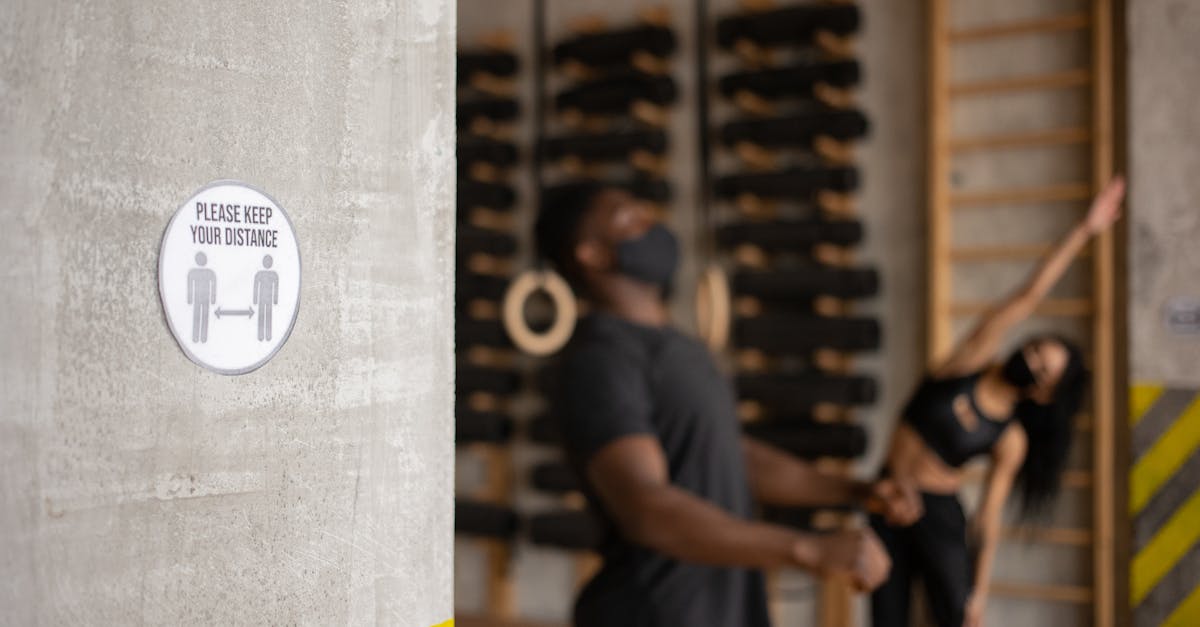Introduction
In any relationship, acceptance is a crucial element that can make or break it. Acceptance is the ability to acknowledge and embrace your partner's unique qualities, including their strengths and weaknesses. It's important to understand that no one is perfect, and accepting your partner for who they are can lead to a more fulfilling and satisfying relationship.
When you accept your partner, you create a safe and supportive environment that encourages open communication and vulnerability. This, in turn, can lead to increased trust and intimacy. Acceptance also allows you to focus on the positive aspects of your relationship, rather than dwelling on the negative.
In addition to the benefits of acceptance, it's important to recognize the dangers of non-acceptance. When you don't accept your partner, it can lead to resentment and breakdown of communication. This can create a toxic environment that can be difficult to recover from.
In this blog post, we will explore the art of acceptance and why it's important in a relationship. We will discuss the benefits of accepting your partner, the dangers of non-acceptance, and provide tips on how to practice acceptance and improve your relationship. By the end of this post, you will have a better understanding of the importance of acceptance and how it can lead to a more fulfilling and satisfying relationship.
Table of Content
- Understanding Your Partner
- Accepting Your Partner's Flaws
- Working Through Differences
- Building Trust through Acceptance
- The Dangers of Non-Acceptance
- Conclusion
Understanding Your Partner
Understanding your partner is a crucial aspect of any successful relationship. It involves taking the time to learn about your partner's personality, values, and beliefs. By doing so, you can gain a deeper appreciation for who they are and what they stand for.
Communication is key in building understanding. It's important to have open and honest conversations with your partner about their thoughts and feelings. This can help you to better understand their perspective and see things from their point of view. It's also important to actively listen to your partner and show empathy towards their experiences.
When you understand your partner, you are better equipped to accept them for who they are. This means accepting their strengths as well as their flaws. No one is perfect, and it's important to recognize that your partner will have imperfections just like you do. By accepting your partner's flaws, you can strengthen your relationship and build a deeper level of trust.
Understanding your partner also means being able to work through differences. Disagreements are inevitable in any relationship, but it's important to find common ground and work towards a resolution. This involves being willing to compromise and finding solutions that work for both partners.
In summary, understanding your partner is a crucial aspect of any successful relationship. It involves taking the time to learn about their personality, values, and beliefs, and communicating openly and honestly with them. By doing so, you can build a deeper level of understanding and acceptance, which can lead to a stronger and more fulfilling relationship.

Accepting Your Partner's Flaws
Accepting your partner's flaws is an essential part of any healthy relationship. It's important to remember that no one is perfect, and everyone has their own set of flaws and imperfections. Accepting your partner's flaws means acknowledging and embracing their weaknesses, quirks, and idiosyncrasies, rather than trying to change or fix them.
When you accept your partner's flaws, you show them that you love and appreciate them for who they are, not just for who you want them to be. This can help to build trust and intimacy in your relationship, as your partner feels safe and secure knowing that they can be themselves around you.
It's important to note that accepting your partner's flaws doesn't mean ignoring or excusing harmful behavior. If your partner's flaws are causing harm to themselves or others, it's important to address those issues and work together to find a solution.
However, for the most part, accepting your partner's flaws means embracing their unique qualities and learning to love them for who they are, rather than trying to change them. This can lead to a stronger, more fulfilling relationship, as you both feel accepted and appreciated for who you truly are.
In order to practice acceptance, it's important to focus on the positive aspects of your partner and their personality, rather than dwelling on their flaws. Try to see their flaws as opportunities for growth and learning, rather than as something to be fixed or changed. By doing so, you can build a stronger, more resilient relationship that can weather any storm.

Working Through Differences
Working through differences is an inevitable part of any relationship. No two people are exactly alike, and disagreements are bound to happen. However, it's important to approach these differences in a constructive way that allows both partners to feel heard and respected.
One key to working through differences is to focus on finding common ground. This means looking for areas of agreement and building on them, rather than getting stuck on areas of disagreement. It's also important to approach the conversation with an open mind and a willingness to listen to your partner's perspective.
Another important aspect of working through differences is to avoid attacking your partner personally. Instead, focus on the issue at hand and try to find a solution together. This means avoiding blame and criticism, and instead focusing on constructive feedback and problem-solving.
Finally, it's important to remember that compromise is key. In any relationship, both partners will need to make concessions and find ways to meet in the middle. This means being willing to give a little in order to find a solution that works for both partners.
By approaching differences in a constructive way, couples can build stronger relationships and deepen their understanding of each other. It takes effort and patience, but the rewards are well worth it.

Building Trust through Acceptance
Building trust is an essential component of any healthy relationship. Trust allows partners to feel safe and secure with one another, and it creates a foundation for intimacy and vulnerability. One way to build trust in a relationship is through acceptance. When you accept your partner for who they are, flaws and all, you show them that you trust and value them.
Acceptance means embracing your partner's strengths and weaknesses, and recognizing that they are human just like you. It means not trying to change them or mold them into someone they're not. When you accept your partner, you create a space where they can be themselves without fear of judgment or rejection.
This kind of acceptance can lead to increased trust and intimacy in a relationship. When your partner feels accepted, they are more likely to open up to you and share their thoughts and feelings. They know that you won't judge them or try to change them, and this creates a sense of safety and security.
Acceptance also requires vulnerability. When you accept your partner, you are showing them your own vulnerabilities and flaws. This can be scary, but it's an important part of building trust and intimacy. When both partners are willing to be vulnerable and accept each other, they create a deep and meaningful connection.
In contrast, non-acceptance can erode trust and intimacy in a relationship. When you don't accept your partner, they may feel like they have to hide parts of themselves or pretend to be someone they're not. This can lead to resentment and a breakdown of communication.
Overall, building trust through acceptance is a powerful way to strengthen your relationship. By embracing your partner for who they are, you create a space where trust and intimacy can flourish. It requires vulnerability and a willingness to accept both your own flaws and your partner's, but the rewards are well worth it.

The Dangers of Non-Acceptance
In any relationship, it's important to remember that no one is perfect. We all have our flaws and imperfections, and it's crucial to accept these aspects of our partners. Non-acceptance can be incredibly damaging to a relationship, leading to resentment and breakdown of communication.
When we refuse to accept our partner's flaws, we are essentially telling them that they are not good enough as they are. This can lead to feelings of inadequacy and insecurity, which can ultimately erode the foundation of the relationship. Additionally, non-acceptance can create a toxic dynamic where partners feel like they have to hide or suppress parts of themselves in order to be accepted.
Furthermore, non-acceptance can lead to a breakdown in communication. When we are not accepting of our partner, we may be less likely to listen to their perspective or be open to compromise. This can create a cycle of conflict and tension that can be difficult to break.
It's important to remember that acceptance does not mean that we have to agree with everything our partner does or says. Rather, it means that we are willing to acknowledge and embrace their flaws and imperfections as a part of who they are. By practicing acceptance, we can create a safe and supportive environment where both partners feel valued and respected.
In conclusion, non-acceptance can be incredibly damaging to a relationship. By embracing our partner's flaws and imperfections, we can create a strong foundation of trust and intimacy. It's important to remember that acceptance is a practice, and it takes time and effort to cultivate. However, the benefits of acceptance are well worth the investment.

Conclusion
In conclusion, acceptance is a crucial aspect of any healthy and successful relationship. It involves understanding and embracing your partner's personality, values, beliefs, and flaws. By accepting your partner, you build trust, intimacy, and a stronger connection. On the other hand, non-acceptance can lead to resentment, breakdown of communication, and ultimately, the end of the relationship.
To practice acceptance, it's important to communicate openly and honestly with your partner. Listen to their perspective and try to understand where they're coming from. Remember that no one is perfect, and it's okay to have disagreements. Instead of trying to change your partner, focus on finding common ground and working through differences together.
In addition, vulnerability is key to building a strong relationship. By being vulnerable and sharing your own flaws and insecurities, you create a safe space for your partner to do the same. This can lead to a deeper level of understanding and acceptance.
Overall, practicing acceptance requires effort and patience, but the benefits are worth it. By accepting your partner for who they are, you create a foundation for a loving and fulfilling relationship.




